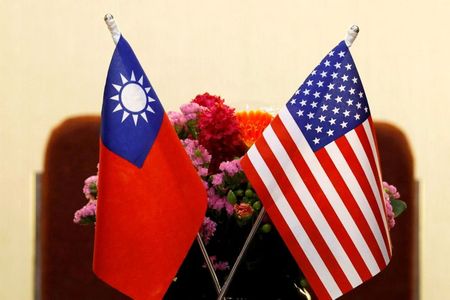U.S., Taiwan Trade Talks to Formally Begin This Fall
2022.08.18 04:42

By Ambar Warrick
Investing.com– The United States and Taiwan are set to begin formal negotiations over an initiative to expand trade ties between the two countries, Washington said on late-Wednesday.
The Office of the United States Trade Representative said in a press release that the first round of negotiations will start early this fall.
The negotiations come under the recently unveiled U.S.-Taiwan Initiative on 21st-Century Trade, which intends to bolster trade between the two countries. The initiative was announced in June.
“We plan to pursue an ambitious schedule for achieving high-standard commitments and meaningful outcomes covering the eleven trade areas in the negotiating mandate that will help build a fairer, more prosperous and resilient 21st century economy,” Deputy United States Trade Representative Sarah Bianchi said in a statement.
The two countries have set an agenda for the negotiations, which will cover the facilitation of trade, regulatory practices, agriculture, and labor rights, among other topics. But the agenda did not include discussions over a free trade agreement.
The announcement comes just a few weeks after U.S. House of Representatives Speaker Nancy Pelosi visited the east Asian island- a move that drove U.S.-China relations to a new low.
China had responded to the visit with military drills along the Taiwan strait. Beijing has opposed the building of any formal diplomatic ties between the United States and Taiwan, which it claims is part of its territory.
But while the United States does not hold any formal diplomatic ties with Taiwan, it has sought to support the island in rejecting Beijing’s claim.
Washington had recently also outlined an economic plan aimed at combating China’s influence in Asia. But the plan had excluded Taiwan. The east Asian island- through Hon Hai Technology Co (TW:2317), or Foxconn- is one of the largest exporters of semiconductors in the world, and is a key source of chips and electronic components for U.S. firms








